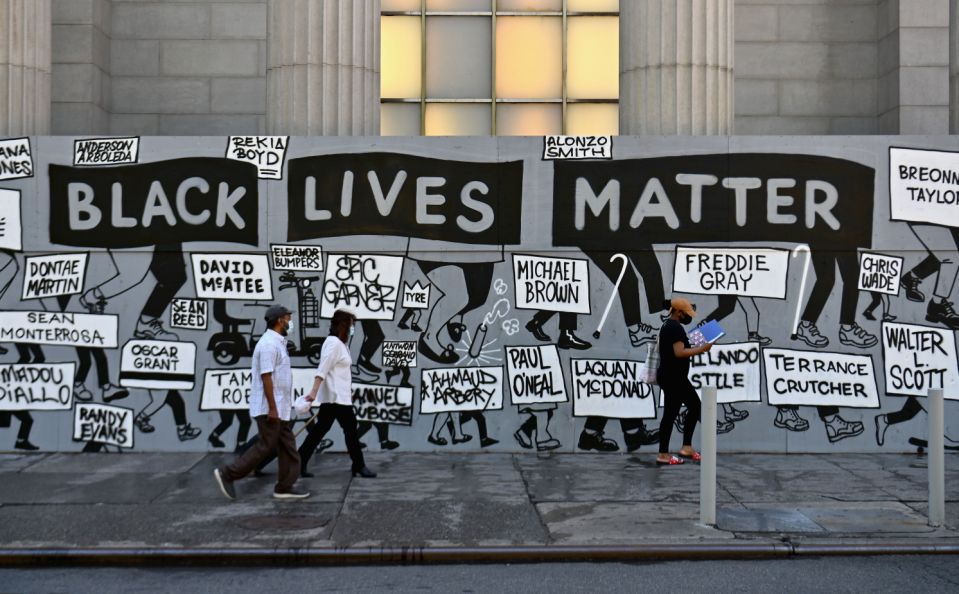If you live in America, racism lurks in the subconscious corners of your mind. This is true for white people as well as minorities; it’s really that simple.
George Floyd’s murder on May 25 at the hands of a white police officer may give us the impression that racism is simply a mindset sustained by unwoke white people. But the truth is far more complicated.
Society is quick to label officers responsible for police brutality as racist, and they are not wrong. However, the effort to rid society of racism by simply spreading woke messages is misplaced because when it comes down to it, racism is wired into us all. And all the knowledge in the world won’t erase that simple fact.
Still not with me? Consider this.
Research by psychologist Joseph Cesario reveals that police officers shoot and kill people of color at much higher rates than white people. That much we already knew. But Cesario’s work illustrates an important caveat: black and Hispanic officers are just as likely as their white counterparts to shoot minorities at higher rates.
Does that mean that racism isn’t at play? Not at all. Rather, Cesario’s research reveals the depth to which race impacts everyone in our society, regardless of skin color.
Cesario’s findings are echoed by the brilliant young historian Ibram Kendi, who recently said,
“You can be someone who has no intention to be racist but because you’re conditioned in a world that is racist and a country that is structured in anti-black racism, you yourself can perpetuate those ideas.”
Racism is so deeply interwoven into our nation’s culture that it is embedded in our neural processors. In other words, it is part of our subconscious mind. This is true for minorities and non-minorities alike. Racism subconsciously impacts the way we view other humans, and perniciously affects people of color, but the psychological framework that drives racism is colorblind.
Cookies and Stereotypes
This point is highlighted by Princeton sociologist Douglas Massey, who wrote Categorically Unequal: The American Stratification System. As he demonstrates, human beings try to make sense of the world around them by reducing society to conceptual categories, which psychologists refer to as schemas. Schemas are the equivalents of the cookies that webpages store on our computers.
Every time you visit a webpage your computer retains a small file of information known as a cookie. If you revisit the same page in the future, the cookies stored on your hard drive improve your subsequent browsing experiences on that page because your computer already has a framework for understanding the page’s content.
Just as cookies help speed up our experiences online, categorical simplification is necessary for humans due to the nature of our brain. It makes up only 2 percent of our body’s weight but uses around 20 percent of its total energy. Over time, we’ve evolved to create mental shortcuts – or schemas – as a means of reducing the amount of energy we expand on decision making. Like cookies, schemas allow us to categorize our world into simplified, transferable forms better known as stereotypes.
Dark Side of Schemas
Schemas lie at the heart of the human experience. They are the foundation of language, poetry, fiction, art work, sports, and nearly everything else we create, say, or think. But schemas have a dark side too.
Just like cookies, which store information about both the good and bad sites we visit online, our brain develops categories for everything around us. Deep in our subconscious mind we have schemas that guide how we think about childrearing, social roles, gender norms, and of course, race.
This is where the story gets uncomfortable.
Our brain quite literally dehumanizes certain categories of people at the neural level. As Professor Massey reveals in his book, social psychologists find that when subjects are shown images of despised out-groups – people like drug dealers, welfare recipients, sex offenders, the homeless, and in the United States, people of color – their brains don’t even recognize them as human.
Massey’s work references research by Lasana Harris and Susan Fiske, who use functional magnetic resonance imagery (fMRI) to observe the behavior of the medial prefrontal cortex, which is an area of the brain that lights up under fMRIs when people recognize emotionally salient information. Thus, lower activation insinuates not connecting with someone (out-group) versus feeling connected to someone (in-group).
In other words, the medial prefrontal cortex helps us make quick decisions about who we trust and who we don’t. For the purpose of their study, Harris and Fiske hooked participants up to an fMRI and began showing them images of people who fit into four categories: pitied out-groups (such as the elderly and disabled), envied out-groups (such as Asian Americans and Jewish Americans), despised out-groups (such as drug dealers, prostitutes, Hispanics, and African Americans) and esteemed in-groups (Caucasians).
Their results were shocking.
Everyone in the study saw 80 images, 20 from each category. As expected, members of the esteemed in-groups failed to recognize despised out-groups as human at the neural level. But so did members of the despised out-group.
Across all subjects, spanning a diverse array of racial and ethnic backgrounds, participants from all ethnic and racial backgrounds failed to recognize images of people from despised out-groups as human. Every other category triggered a clear reaction in the medial prefrontal cortex, but despised out-groups did not.
The implications of this work are profound.
Subconscious Nature of Racism
Naturally, our minds reflect our society. We learn from our surroundings, and if you are American, what you learn from a very early age is that minorities are inferior to whites. Your mind observes, whether consciously or not, that opportunity structures in America are grossly tilted in favor of white people.
Your mind notices that white individuals have more access to quality education, good healthcare, and high paying jobs. And every day in the news and social media your mind absorbs images of minorities being portrayed as criminals, thugs, and gang members. Eventually, your mind begins to categorize minorities as inferior people.
Given this, regardless of how woke our society is, people of color will not be seen as complete humans until we actually change the way life is structured according to race. Whether we’re conscious of it or not, we’re all biased against minorities in America and need to unlearn what our brains have naturally put together for us.

It’s not merely that white people don’t get it, their brain is wired not to get it. And if you live in America, it’s the way your brain is wired too. Long before we even know what racism is, it’s already hardwired into how we think.
The subconscious nature of racism helps explain why, despite all the efforts to spread the word about police brutality, we continue to see minorities being killed at such high rates by police officers. It also reveals why minorities are shot by both white and minority officers at higher rates than whites.
Restructuring American Society
The problem is indeed racism but racial stereotypes won’t disappear by simply spreading woke articles on Facebook or debating with friends. Just as it won’t melt away by including more inclusive curriculum in K-12 education or capturing every moment a minority comes into contact with a police officer on video.
Clearly, these things will help bring about awareness and justice, but to actually progress as a society we need to decouple opportunity structures in our society from race.
We need to restructure our entire country. We need to desegregate – in practice, not merely in law – the deep geographic divisions that are etched into our nation’s built infrastructure. We need to fund education according to economic need as oppose to zip codes. We need to provide health care to those who suffer the most health inequities, not merely those who can afford to walk through the door of a primary physician’s office. And we need to create paths to political office that are dependent on one’s ability to represent their constituents, not corporate offices.
Structural change is necessary because our mind reflects our social structure. The only way to shift a mental construct such as racism is by fundamentally reorganizing our physical world. And that process begins with everyday Americans taking to the streets to peacefully demand real change, because if history has taught us anything, it’s that the powerbrokers in society don’t let go of their control without a fight.
Disclaimer: The views and opinions expressed here are those of the author and do not necessarily reflect the editorial position of The Globe Post.






















